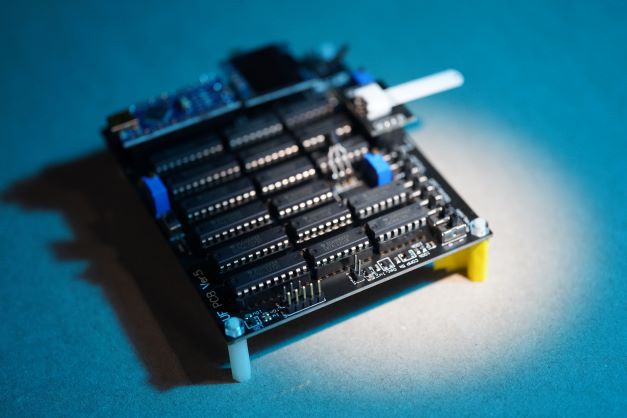University of Florida researchers help develop highly accurate 30-second coronavirus test

The motherboard of a COVID-19 rapid testing device that UF Health researchers helped develop is seen here. Photo courtesy of Houndstoothe Analytics.
With any highly infectious disease, time can be a killer.
It is crucial to get a test result for a pathogen quickly, lest someone continue in their daily lives infecting others. And delays in testing have undoubtedly exacerbated the COVID-19 pandemic.
Unfortunately, the most accurate COVID-19 test often takes 24 hours or longer to return results from a lab.
At-home test kits offer results in minutes but are far less accurate or sensitive.
Researchers at the University of Florida, however, have helped developed a COVID-19 testing device that can detect coronavirus infection in as little as 30 seconds as sensitively and accurately as a PCR, or polymerase chain reaction test, the gold standard of testing. They are working with scientists at National Yang Ming Chiao Tung University in Taiwan.
The device, researchers said, could transform public health officials’ ability to quickly detect and respond to the coronavirus — or the next pandemic.
UF has entered into a licensing agreement with a New Jersey company, Houndstoothe Analytics, in hopes of ultimately manufacturing and selling the device, not just to medical professionals but also to consumers.
Like PCR tests, the device is 90% accurate, researchers said, with the same sensitivity, according to a recent peer-reviewed study published by the UF group.
“There is nothing available like it,” said Josephine Esquivel-Upshaw, D.M.D., a professor in the UF College of Dentistry’s department of restorative dental sciences and member of the research team that developed the device. “It’s true point of care. It’s access to care. We think it will revolutionize diagnostics.”